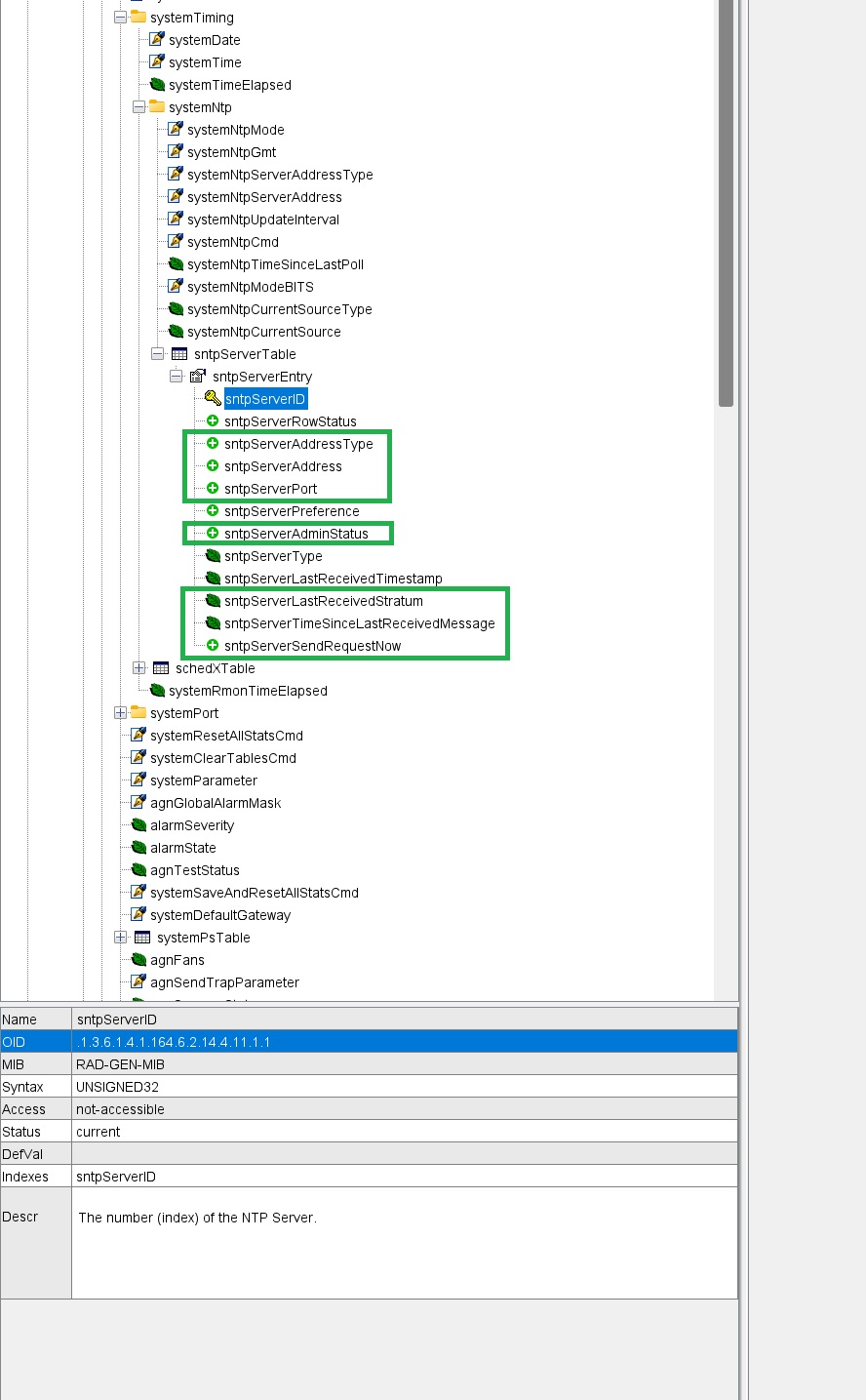Hello Dojo community,
We are experiencing the following issue on a client’s system.
Specifically, the device implementing SNMP for monitoring is struggling to handle multipleGetNext requests from DataMiner. As a result, the device frequently goes into short-term timeouts.
To resolve this, we aim to implement a slower GetNext method that retrieves table values cell by cell, from the first to the last column (as opposed to multipleGetNext, which retrieves row by row).
This approach has proven effective, but we are encountering a problem with tables that do not implement all columns.
For example, the 'SNTP Server' table on the DataMiner side implements all columns defined in the MIB, but on the device side, only 7 columns are implemented. Below, you’ll find an image of this table for the protocol with the 'usual' instance + multipleGetNext implementation (previous version which need to be modified).

Additionally, I am adding an image that shows which columns are implemented by the SNMP Agent (device side).

*It doesn't implement server IDs as well*
According to the documentation and guidelines, the 'instance' option should not be used with the GetNext method.
So, my question is this: Is it possible to use the GetNext method if the device end doesn’t implement all the columns, specifically up to the last one included in the DataMiner table?
Thank you!
Hi Matej,
For GetNext method to work all columns that are defined in the connector should be available in the device.
But if the device doesn't implement all columns there's not much point in adding them to the connection as they will be always Not Initialized no?
Hi Jorge,
Yes, that’s the case. Fortunately, this connector is used by only one client, whose devices don’t implement those columns, so we’ll simply remove them. I’ve already made the changes, and everything is working as expected.